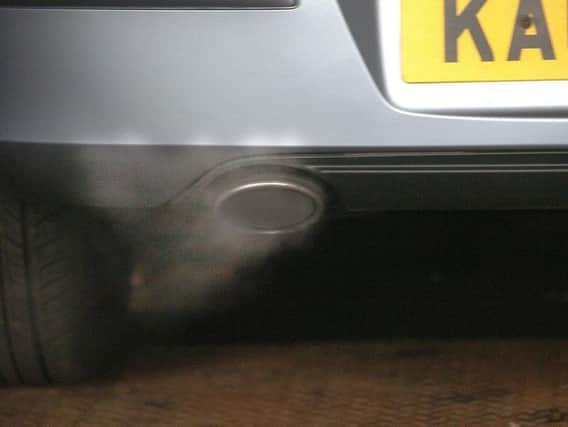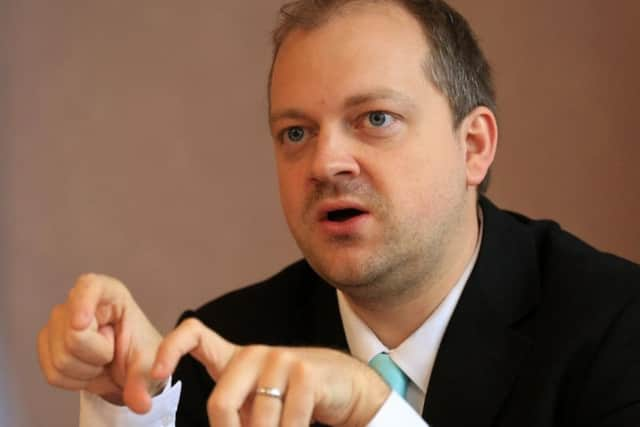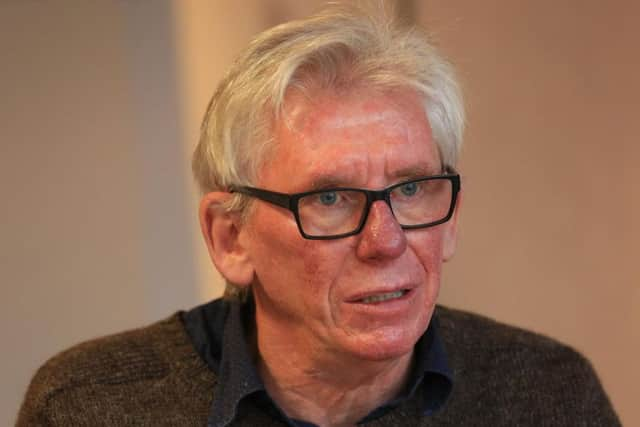Could van and lorry drivers could be charged for entering Sheffield?


Sheffield Council will investigate whether a Clean Air Zone is needed to tackle the illegally high levels of nitrogen dioxide and other pollutants believed to be killing 500 people a year in the city.
That could involve charging the largest and most polluting vehicles to enter the zone.
Advertisement
Hide AdAdvertisement
Hide Ad

However, the council believes other plans, which include creating a 20mph limit across the city centre, setting up anti-idling zones around schools and working to introduce cleaner buses and taxis, will be sufficient to reduce pollution without resorting to charging.
Those are among numerous measures set out in the council's Clean Air Strategy, which was approved by cabinet members yesterday.
Councillor Jack Scott, cabinet member for environment, described it as the 'most far-reaching and ambitious air quality plan anywhere in the UK' and said it would help address the 'significant threat' air pollution poses to the city.
"The changes we are proposing will help to build a city for the many not the few, by making Sheffield healthier and easier to move around, and will play a role in growing our economy," he added.
Advertisement
Hide AdAdvertisement
Hide Ad

Nitrogen dioxide levels in Sheffield are as high as 53 micograms per cubic metre, which is well above the legal limit of 40μg/m³, and the council claims air pollution costs the city £200 million a year.
Those in poorer parts of the city are more likely to be breathing in toxic air, says the council, and around a quarter of primary schools are in areas with high nitrogen dioxide levels.
The new strategy seeks to reduce nitrogen dioxide levels by 30 per cent, which it says can be achieved by making buses and taxis and public sector vehicles less polluting, and by increasing public transport use, encouraging more people to walk and cycle and raising public awareness of air quality issues.
It includes plans to increase walking and cycling by, for example, improving cycle routes, making electric bikes more accessible and introducing adult cycle training and free bike loans.
Advertisement
Hide AdAdvertisement
Hide Ad

It also sets out proposals to review parking across the city, in an attempt to get more people to ditch their cars, and to explore extending the tram network in the longer term.
People on lower incomes, especially those requiring a car for work, such as carers, could be offered support to switch to cleaner vehicles, the strategy states.
And the council will continue to lobby the Government to reverse its decision to abandon the electrification of the Midland Mainline, with diesel trains being a significant source of air pollution in the city.
Neil Parry, from the East End Quality of Life Initiative, which has been highlighting problems with air pollution for many years, welcomed the new strategy as 'bold' and 'ambitious'.
Advertisement
Hide AdAdvertisement
Hide Ad

However, he said previous plans drawn up in 2013 had been similarly ambitious only to be watered down as they were considered 'anti-business'.
He demanded a guarantee councillors would treat improving air quality as a 'high priority' this time around, rather than buckling under pressure from businesses.
Coun Scott responded that he could understand people's scepticism, given what had happened in the past, but he insisted the council was serious about achieving its targets this time around.
He said: "I believe you can see in this strategy there's a renewed commitment and passion to ensure we tackle poor air quality and the issues associated with that. People understand we can't have a fair city unless we tackle air pollution."